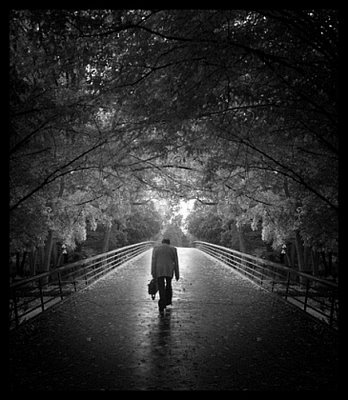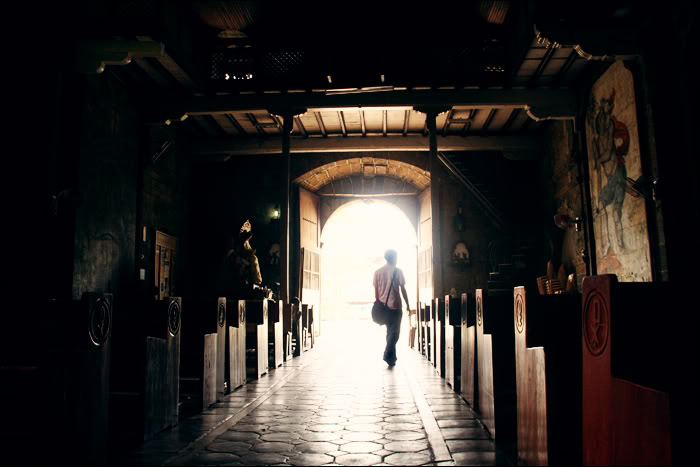Friendship Thoughts
For a more thoughtful commentary on the different kinds of friendship, I’d invite you to read this article by Dr. Taylor Marshall.
The article Modern Friendship first appeared on RestlessPilgrim.net
"We are travellers…not yet in our native land" – St. Augustine
For a more thoughtful commentary on the different kinds of friendship, I’d invite you to read this article by Dr. Taylor Marshall.
The article Modern Friendship first appeared on RestlessPilgrim.net
 A while ago I saw an article on Facebook which reported that Fr. Bourgeois, a priest who for many years publicly opposed the Catholic teaching of a male-only priesthood, had been dismissed from the Maryknoll Fathers and Brothers.
A while ago I saw an article on Facebook which reported that Fr. Bourgeois, a priest who for many years publicly opposed the Catholic teaching of a male-only priesthood, had been dismissed from the Maryknoll Fathers and Brothers.
A friend of mine posted a link on Facebook to the article with the comment “Those bastards in the vatican!!!!”.
My friend has links to the Catholic Church and we have Catholic friends in common, but when I saw the article on his Facebook Timeline I noticed that not a single person had offered a defense of the Church’s actions.
Another day, another apologetics website, Apostolic Apologetics:


I am part of a Bible Study currently working through the Gospel of Matthew. The group has been meeting for over a year now and we’ve worked our way through several books of the New Testament.
When we come together, before we begin looking at the book in question, we have a bit of a question-and-answer session. The goal of these questions is to have a clear understanding as to the structure of the New Testament.
Over the months that we’ve been meeting, the number of questions have increased. I thought it would be encouraging for everyone to see how many questions concerning the New Testament they can now answer. It turns out that, not only can they recite the books of the New Testament in order, but that they can answer over fifty questions about it:
1. In what language was the New Testament written?
2. What is the likely exception to this?
3. Which books appear first in the New Testament?
4. Why are these books placed first in the canon?
5. Why do they appear in this order?
6. Which Gospels are attributed to Apostles?
7. With whom is Mark associated?
8. What is Mark’s other name?
9. With whom is Luke associated?
10. What is Luke’s profession?
11. What comes after the Gospels?
12. By whom is it written?
13. To what genre does it belong?
14. What is the first main message of the Acts of the Apostles?
15. What is the second main point of the Acts of the Apostles?
16. Between what years do the events described in Acts of the Apostles take place?
17. What appears after Acts?
18. Why are these epistles placed in this order?
19. What are the names of the cities/communities?
20. From where did Paul write the epistle to the Philippians?
21. What city was he probably in at the time?
22. Why did Paul write that letter?
23. Who probably delivered this letter for Paul?
24. What are the main themes of that letter?
25. What Christian hymn does Paul quote in the letter in Chapter 2?
26. What is the main theme behind the letters to the Thessalonians?
27. What claim-to-fame do the Thessalonian letter have?
28. What appears after Thessalonians?
29. Who was Timothy?
30. What background information do you know about Timothy?
31. Who was Titus?
32. Who was Philemon?
33. Where did Philemon most likely live?
34. What is the context of the letter?
35. What was the name of Philemon’s slave?
36. What is the meaning of the slave’s name?
37. What does Paul ask of Philemon?
38. What appears after Philemon?
39. Why does Hebrews appear here?
40. What literary genre is Hebrews?
41. What is the main theme of the book?
42. What did St. Thomas Aquinas think about the authorship of this epistle?
43. What appears after Hebrews? What category of books do we call these?
44. Who most likely wrote James’ epistle?
45. How would you summarize James’ epistle?
46. What documents appear next?
47. What documents appear after that?
48. After that?
49. What is the final book of the Bible?
50. What is its literary genre?
51. What are the two main senses of Scripture according to the Catechism?
52. What are the three types of spiritual senses?
I wasn’t taught this stuff in school. In fact, I remember that when I was teaching Confirmation it came as a surprise to many of the students that there was an Old Testament and a New Testament. Why isn’t this stuff taught in Catholic schools?!
UPDATE: The answers have now been posted:
Answers 1-16 | Answers 17-27 | Answers 27-42 | Answers 43-52
The article New Testament Warm-Ups first appeared on RestlessPilgrim.net
When I first heard that Jorge Bergoglio had been declared Pope, I immediately looked him up on my Conclave Android app and my eyes were quickly drawn to the sentence which said that in Argentina he had been the Ordinary for Eastern-rite Catholics without an Ordinary of their own rite.
I was hopeful that, given this background, his pontificate would be particularly sensitive to the the Christian East. I have not been disappointed.
Even in these first few months that he has been Pope, both East and West have made gestures of friendship, building on the great work of their predecessors. Inspired by this, I started to consider what I could do.
As I was thinking about this, I remembered an article I had read over at Ramblings of a Byzantine Catholic where it said that the East and West remain divided “because our love has grown cold”. So, if that’s the case, what could I do to nurture and express love for our Orthodox brethren?
Over the past few days we have been looking at suggestions as to what can be done to draw people back to the Catholic Church.

Today is the final post in this series. These suggestions focus on the conversations which you will have with those who have drifted away from the faith:

Wisdom is to the soul what health is to the body
– La Rochefoucauld
The article Healthy Wisdom first appeared on RestlessPilgrim.net